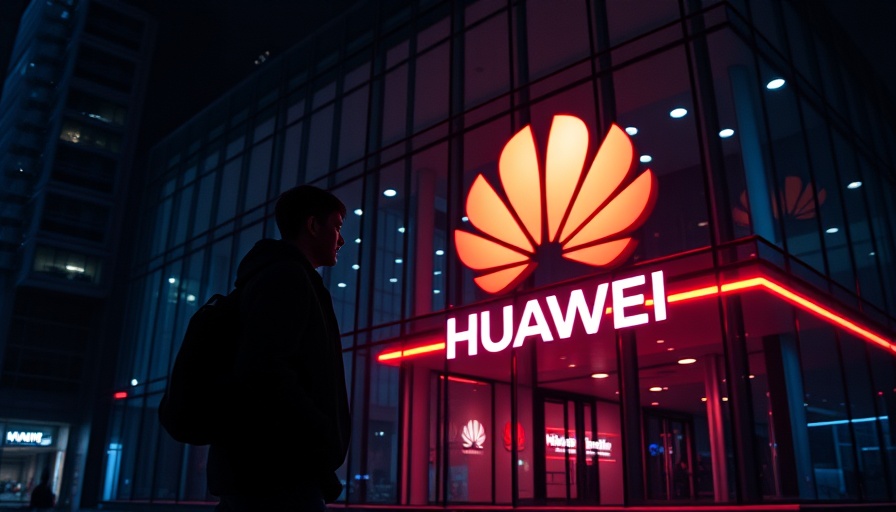
Huawei Takes Aim at Nvidia's Dominance in AI Chips
In a bold push to redefine its position in the crowded semiconductor market, Chinese tech giant Huawei is developing a new advanced AI chip designed to rival Nvidia's industry-leading H100 series. This move comes in the wake of intensified restrictions on AI chip exports from the United States to China, creating a significant opportunity for local companies to fill the gap left by foreign suppliers.
Unveiling the Ascend 910D
According to recent reports from sources close to Huawei, the company is progressing with the development of its latest product, the Ascend 910D. This advanced AI GPU aims to compete directly with Nvidia's offerings, particularly in the domain of training AI models for various applications across industries. As businesses increasingly rely on AI technology, the need for powerful processing units has skyrocketed, highlighting the potential market for Huawei’s new chip.
The Impacts of Increased Export Restrictions
The U.S. government has imposed several export bans targeting high-performance semiconductors, including AI chips. These restrictions are part of a broader geopolitical strategy aimed at curbing China's technological advancements and protecting U.S. interests. For Huawei, these challenges could also present unique opportunities. By fostering local partnerships with other Chinese tech firms, they could create a robust ecosystem that lessens dependence on foreign technology while bolstering national industry resilience.
The Competitive Landscape of AI Processing
Nvidia’s H100 series has become a favorite among tech companies for its exceptional capabilities in handling massive data sets and complex computations necessary for training machine learning models. As Huawei enters this competitive arena, it must not only contend with Nvidia's reputation but also innovate effectively to attract customers. The success of the Ascend 910D hinges on its ability to deliver similar or superior performance at a competitive price.
What This Means for the Global Tech Market
As Huawei progresses with the Ascend 910D, this could signify a pivotal shift in the global tech landscape. If successful, Huawei’s chip could disrupt the current market dynamics dominated by Nvidia and AMD. It would also signal a growing self-reliance within China's tech industry, which could create new partnerships and opportunities for collaboration among local enterprises, possibly leading to a more competitive market overall.
Looking Ahead: Future Trends in AI Chip Development
The race for advanced AI chips is not merely a matter of processing power; it reflects broader trends in technology, such as autonomy, data security, and the evolution of AI applications across sectors. Companies are now competing to build systems that not only perform tasks but also learn and adapt over time. This focus on self-learning capabilities will remain essential as businesses look to deploy AI in everything from automated customer service to advanced predictive analytics.
Final Thoughts: The Message to Consumers and Investors
The emergence of Huawei’s new AI chip is a clarion call for both consumers and investors alike. For those following technology and market trends, it highlights the importance of being aware of local developments that could reshape industry dynamics. Investors should consider how these developments may influence market valuations, while consumers should keep an eye on potential shifts in their tech options that could arise from increased domestic competition.
As the tech world watches this unfolding story, it’s essential to stay informed about the implications of these advancements within the AI sector
 Add Row
Add Row  Add
Add 



Write A Comment